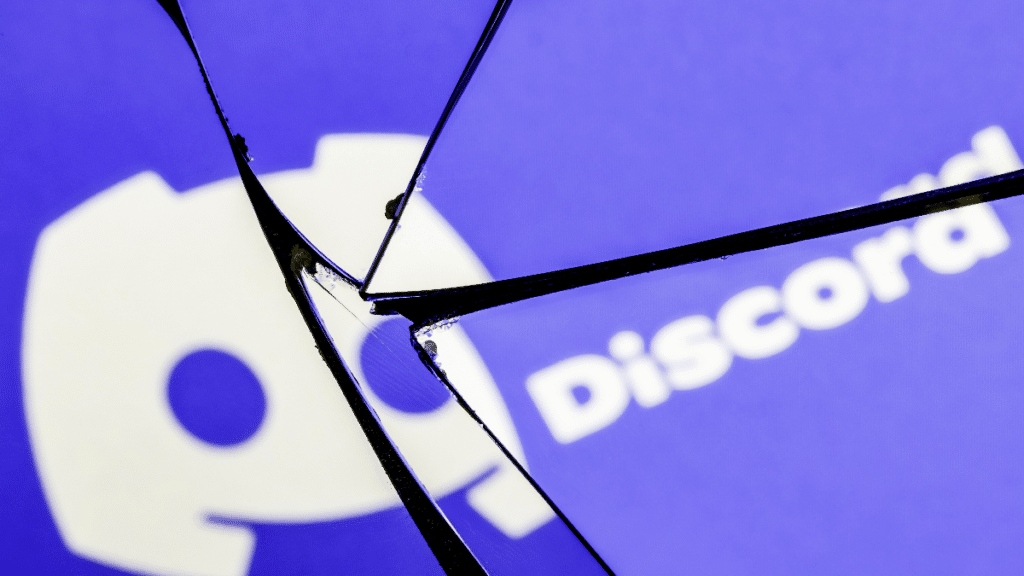How Social Media Incentives Helped Drive the Discord Leaks
Emma Briant / May 1, 2023The national security breach by Airman Jack Teixeira must finally prompt policymakers to address the online incentives social media and messaging companies create, argues Dr. Emma L. Briant, a political communication scholar who researches contemporary propaganda and military information warfare and its governance and ethics in an age of mass-surveillance.
National Guard Airman Jack Teixeira was able to share US secrets on Discord for nearly a year before authorities caught up with him. To understand why, after so long, Teixeira’s leaking was eventually revealed, it’s worth considering the key role the social app Discord, and the incentives in the broader social media ecosystem, played in his leaks.
Teixeira planned his intelligence leaks in part guided by the response he received on the messaging app, like an influencer generating engagement from ‘fans.’ And, he did so in a broader political and cultural context where sharing classified information is not a shock - in fact, it’s encouraged.
This may eventually have made him a victim of his own success. Apps like Discord are designed to encourage attention-seeking behavior, and thus they present a specific vulnerability for the military - not least because within such communities, spies may also be lurking. This is particularly concerning with extremists like Teixeira, who engaged in a toxic stew of far-right politics and is reported to have stated online “If I had my way I’d kill a [EXPLETIVE] ton of people ... Bc in all honesty you have to ... whether or not you like it ... Seriously I would be forcibly culling the weak minded.”
His behavior makes the Discord leak an important case for policymakers and military leaders to learn from. A first key question is - with so many seeing the leaks - how was it possible that Teixeira was not reported to the authorities?
Donald Trump, QAnon and the fight against the “Deep State”
It is worth looking at what US political culture has recently normalized. The last Commander in Chief, former President Donald Trump, faced impeachment after encouraging his extremist supporters to overturn an election result. Trump now faces an investigation into whether he violated the Espionage Act after keeping secret documents including foreign leader briefings for purposes unknown. With a model like this to follow, is the lack of seriousness by a young Airman immersed in the far right fringe toward using intelligence for his own ends really so surprising?
What’s more, with Trump’s encouragement, the QAnon conspiracy theory spread and gained legitimacy in some military communities, especially with amplification by high-profile military figures such as former National Security Adviser Gen. Michael Flynn. Supporting the 'Stop the Steal' movement’s false claim that 2020 US election results were fraudulent, the QAnon cult asserted that a “deep state” was trying to subvert the rightful authority of the Trump administration. Q was supposedly coming to the rescue, leaving clues to decode.
Whether he saw himself this way or not, the military must now contend with the reinvention of Teixeira into a kind of Q-like hero by Republican politicians like Rep. Marjorie Taylor Greene (R-GA), ex-Fox influencer Tucker Carlson, and Donald Trump Jr. “Teixeira is white, male, christian, and anti-war,” Rep. Greene recently tweeted, “That makes him an enemy to the Biden regime.” Former President Trump continues to regularly promote QAnon and its followers. Part of QAnon’s appeal is how it encourages followers to become armchair sleuths, identifying and ‘decoding’ apparent messages from Q ‘drops.’ Social media’s incentives therefore also drive interest in any ‘secret’ material shared online.
The flood of actual leaked or hacked material on social media over the last decade may also have made the national security documents Teixeira circulated less shocking to find. The Kremlin has greatly increased its use of cyberattacks for influence operations circulating leaked material since the start of the 2022 war on Ukraine. This means that - hacked or leaked, real or doctored - secret documents might not be as unusual circulating in the online world Teixeira’s extremist friends inhabited. In this revealing exchange reported in the Washington Post we can glimpse these young gamers’ ambivalent attitudes:
“Here, have some leaked documents,” a Discord user wrote as he uploaded some of the classified information to another chatroom, this one focused on the Minecraft computer game.
“Nice,” came a reply from another user in a room with about 8,000 members.
Most importantly, in the fringes of Discord, real revelations may exist alongside fake or misleading ones: everything from QAnon ‘drops’, to fragments of the Facebook Files, to supposedly revealing documents on Dr. Fauci’s purported plotting. All are presented at the same time as equal in gravity, equally plausible - equally not. If one wants to know why his fellow Discord group members didn’t report Teixeira, one might look to the culture of their community, and their different concept of who the ‘bad guys’ might be. Is it really so surprising that Teixeira’s grainy images failed to generate a serious response among people scrolling by looking for racist memes and posts about the latest gamer or military gear?
Unlike Teixeira’s earliest Thug Shaker Central leaks, which were mostly transcribed notes, much of his latest leaks appear to have been designed to draw eyeballs, clicks and shares from other extremists. By comparison, for Teixeira’s friends, his early Discord updates were perhaps forgettable. Social media users are used to seeing professionally designed content, optimized for viral engagement on large, more public, social media networks like Twitter, Instagram or Facebook. Today’s leaks can be promoted with ‘deep state’ memes, or viral videos of ‘antiwar’ influencers leveraging pro-Russian conspiracy theories to millions of followers. Whether synthetic or real, hacked or leaked, such scandals are spread across many social media apps, amplified by algorithms that drive us to content which most resonates with our darkest fears about the world.
This online environment – awash with conspiracy theories, crude memes and leaked material – has an effect not dissimilar to that observed by political theorist Hannah Arendt in her writings on fascism: "In an ever-changing, incomprehensible world the masses had reached the point where they would, at the same time, believe everything and nothing, think that everything was possible and nothing was true…”
Teixeira seemed to assume his friends would not share his posts - or alert the authorities - perhaps as the social app Discord is considered more private than other apps. Though they were unlikely to report him to the authorities, it’s more curious that the documents didn’t leak onto Twitter, 4Chan and Telegram sooner.
The reason this changed after such a long period was likely because Teixeira learned what would engage readers on the platform. We are told of his mounting frustration at the lack of engagement he was getting for his boring text updates on casualties and foreign aid to Ukraine:
It started as long daily memos with complicated and, at times, confusing summaries of international events that members of the group found difficult to follow. Sometimes he would admonish his younger friends for not taking the information seriously, Vahki said. Around October last year, his frustration led him to start posting original documents, including detailed battle maps from the war in Ukraine marked “TOP SECRET.”
An ‘attention economy’ incentivizes social media companies to design technologies to encourage users to spend more and more time sharing and interacting with content. Such design, combined with the isolation of his job and his growing extremism, is important to understanding Teixeira’s increasingly desperate online attention-seeking behavior. In this kind of anonymous chat group, he needed to do more to get engagement.
Teixeira began taking escalating risks for his art - including taking documents home to photograph. He shared more ‘visual’ content that he thought would finally provoke the comments and attention he sought. Teixeira wasn’t just ego-driven, he was social network-driven.
Over time, consciously or not, he designed his intelligence leaks around generating platform engagement, specifically making searches for content he thought would be appealing. Perhaps his success in developing his online presence as a wannabe micro-influencer was his downfall - when his community eventually found his posts compelling, some couldn’t resist sharing them across their own social media and gaming communities.
If, as James Bamford once said, Edward Snowden was a “uniquely postmodern breed of whistleblower,” Teixeira must be a uniquely post-attention economy leaker.
Sharing for the likes
Of course not everyone in the military would want to share secrets for fun just because they’re on Discord. Chat groups are used for all sorts of purposes. But for extremists like Teixeira, it’s worth remembering social networks don’t only distribute - they create rewards and incentives that may encourage escalation of leaking behavior. Deliberate state actors manipulate the intimacy and online anonymity in groups like this in their spycraft, and may encourage this information sharing further. Which makes it all the more surprising that the US military itself uses social media platforms like Discord to engage with gaming communities, even encouraging service members like Teixeira to bond there.
This suggests a superficiality in the military’s effort to tackle extremism, especially in the context of inadequate background checks. The Air Force has been in the spotlight already for failing to flag the perpetrator of a mass shooting at a church in 2017, in which 26 people died. The Discord Leaks raise the pressure on the Air Force, which has now suspended two commanders in Teixeira’s squadron and revoked their access to classified networks and information. It must now explain how processes will be reformed to prevent future lapses; considering vulnerabilities of the online environment must be part of this assessment.
The artificial intimacy in Discord’s invitation-only group-chat rooms likely made anonymous strangers in Teixeira’s group feel like close friends. Social media companies like Discord build an online environment that encourages trust so users share personal information to generate a reaction. Meanwhile a culture of ‘transparency’ and ‘anti-secrecy’ has emerged in these digital communities. Online experiences also distance users from contemplating real world consequences of their actions, in this case potential casualties following the exposure of Ukrainian military plans - or even the arrest of a friend.
What is to be done?
The naiveté – or perhaps arrogance – of the US military in thinking that young service members who have grown up in digital environments will naturally engage safely on social media platforms is palpable - particularly given Discord’s extremism problem. Just as they wouldn’t send personnel into the theater of war without understanding human vulnerabilities in the physical battlespace, the US military needs to understand the logic of online environments before allowing – and indeed encouraging – personnel to use new technologies.
Clearly, we also need internet platforms to be safer for everyone. According to Discord, already 15% of its full-time staff members are dedicated to trust and safety, and they have been assisting the authorities. Indeed, extremist groups are a problem on many social apps. The industry trend among companies like Twitter and Facebook is cutbacks to these vital staff, making online safety a growing issue for all of us, let alone the millions of service members on the platforms. Big Tech has learned how little the regulatory consequences of recent scandals (or lack thereof) hurt their profit margins.
As governments struggle now for control of the online space, I’ve argued in SpyTalk that we must stay vigilant to ‘AI solutions’ that hinge on the potential further erosion of privacy to track ‘insider threats.’ The Discord Leaks should demand instead that policymakers address the broader attention economy that incentivizes the worst online cultures and user behaviors, or these will continue to pose dangers in the offline world.
Authors

